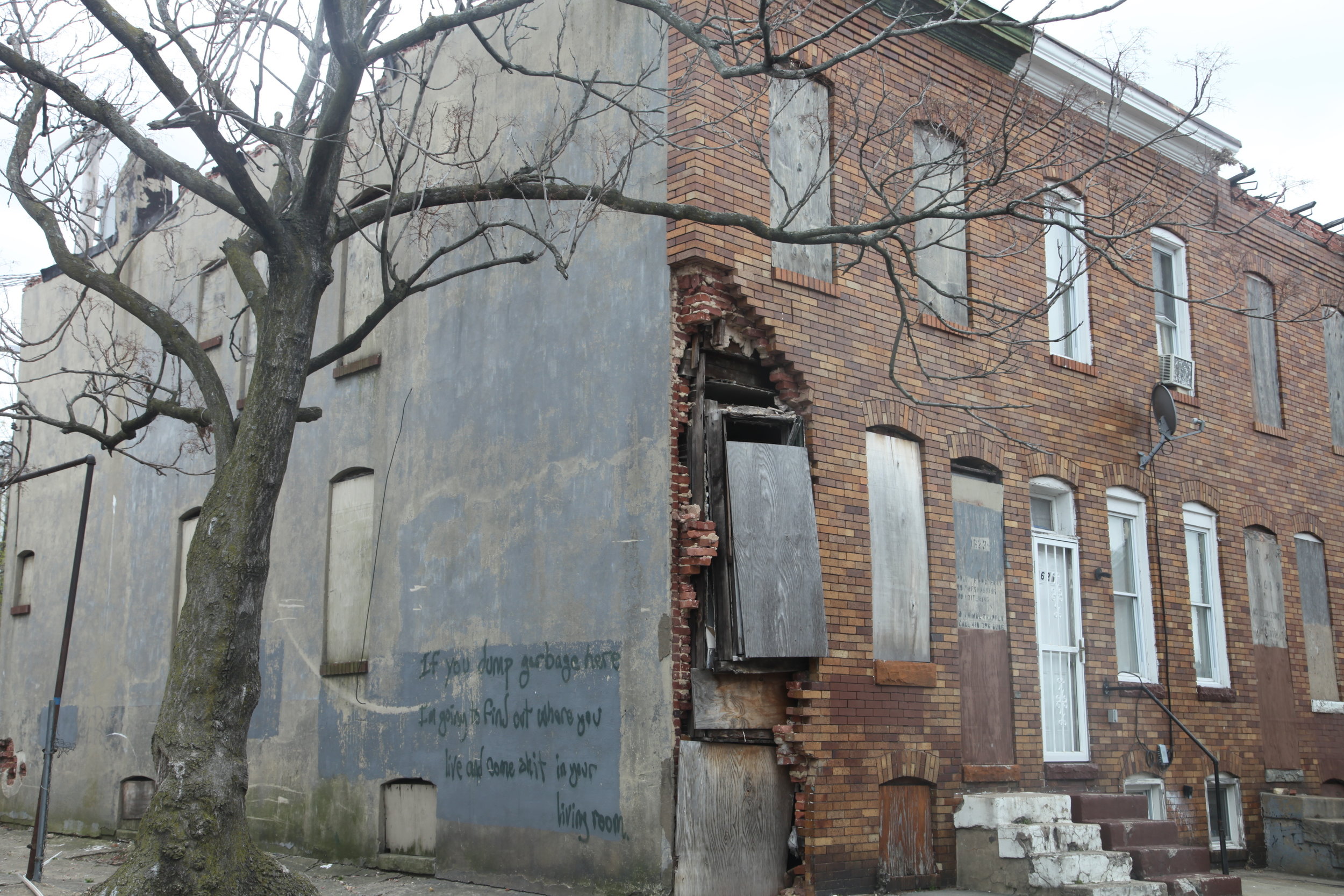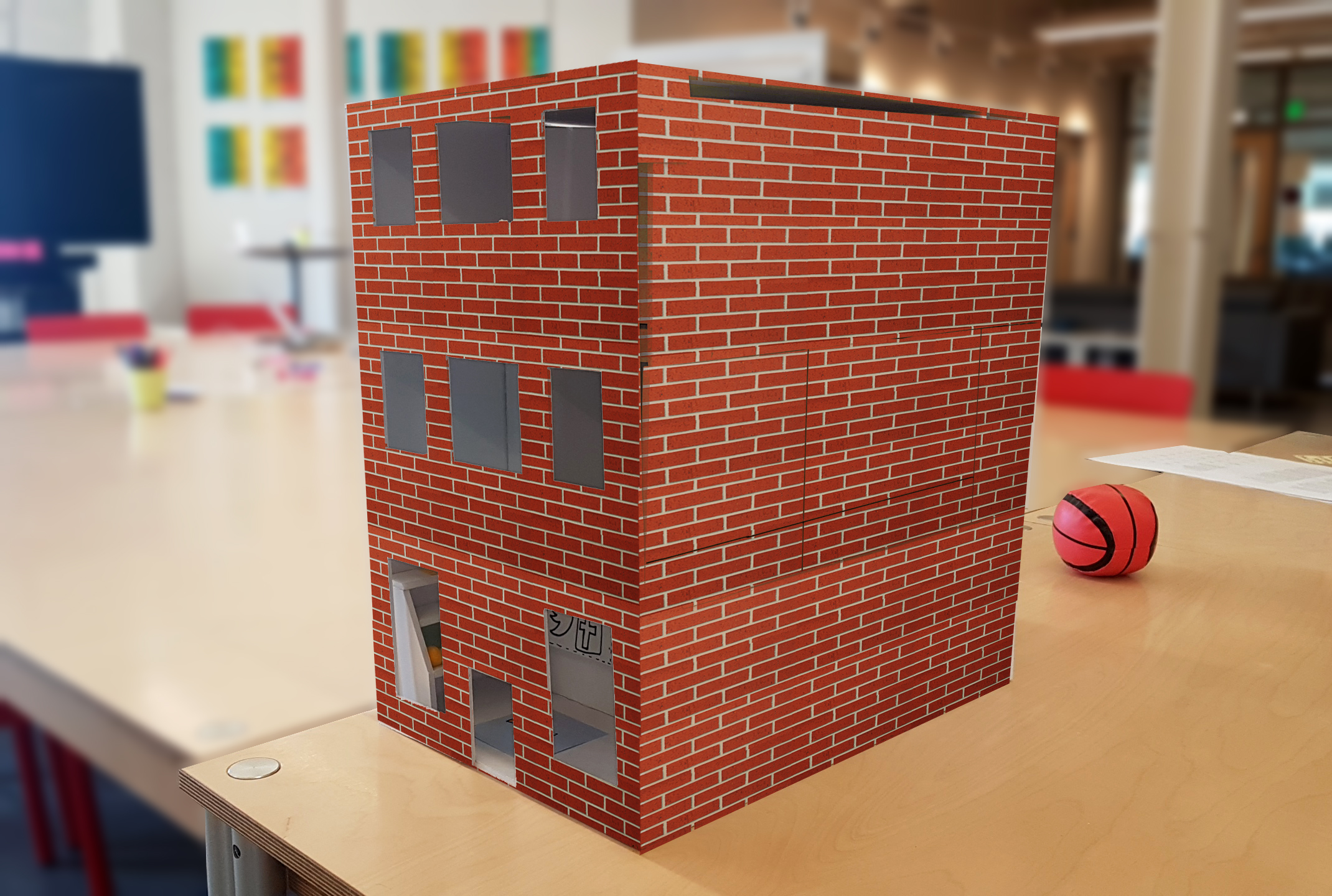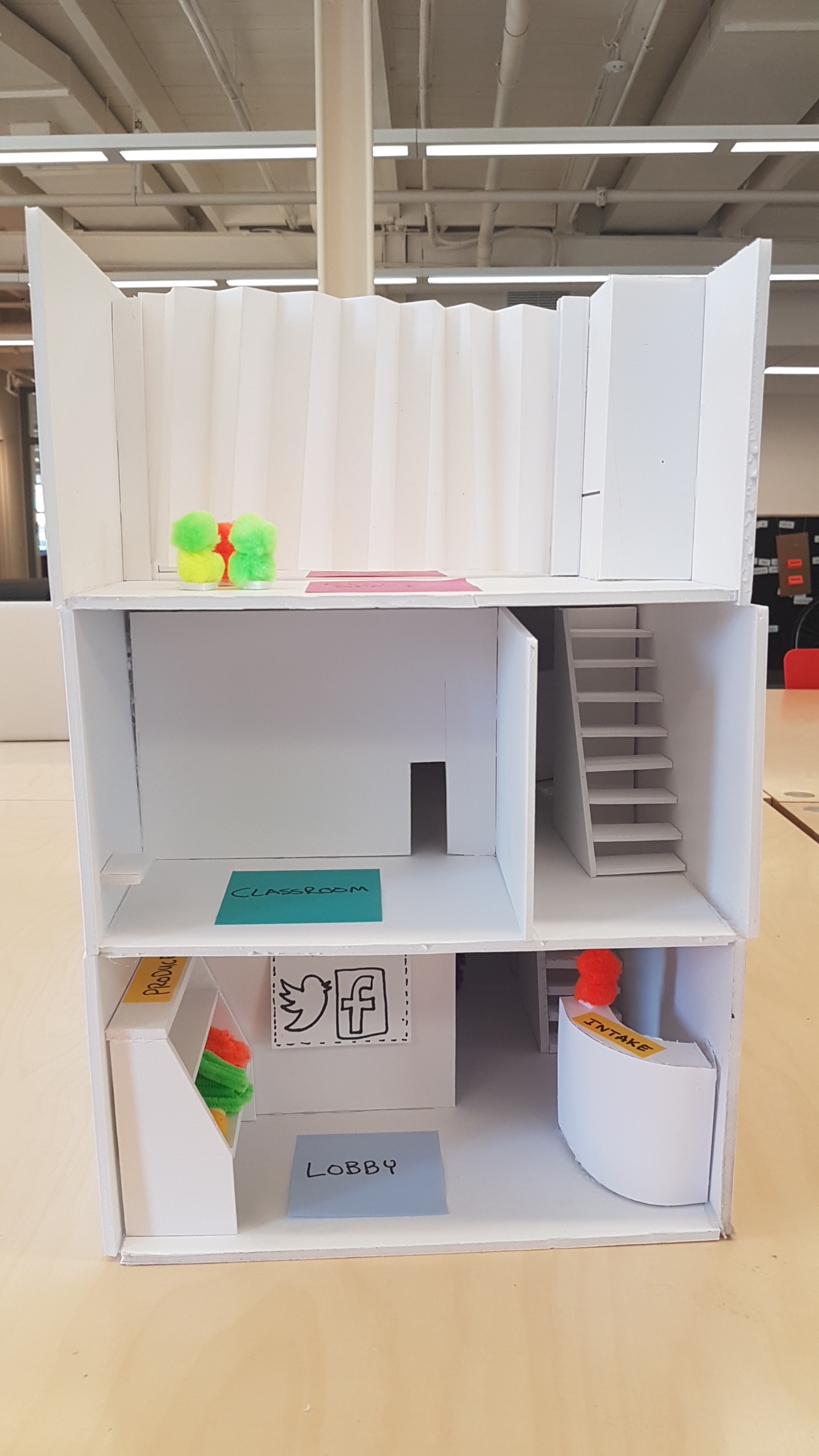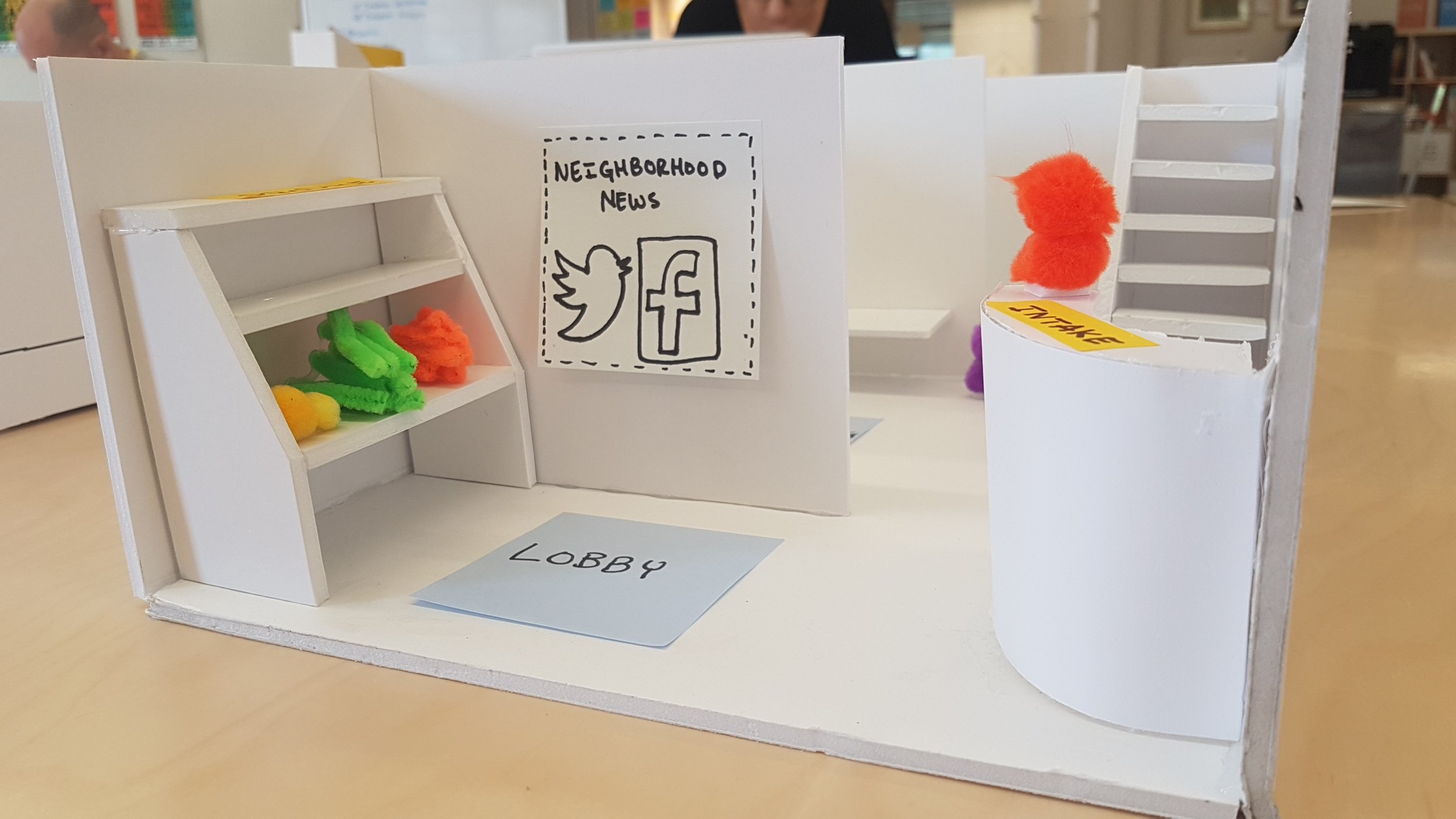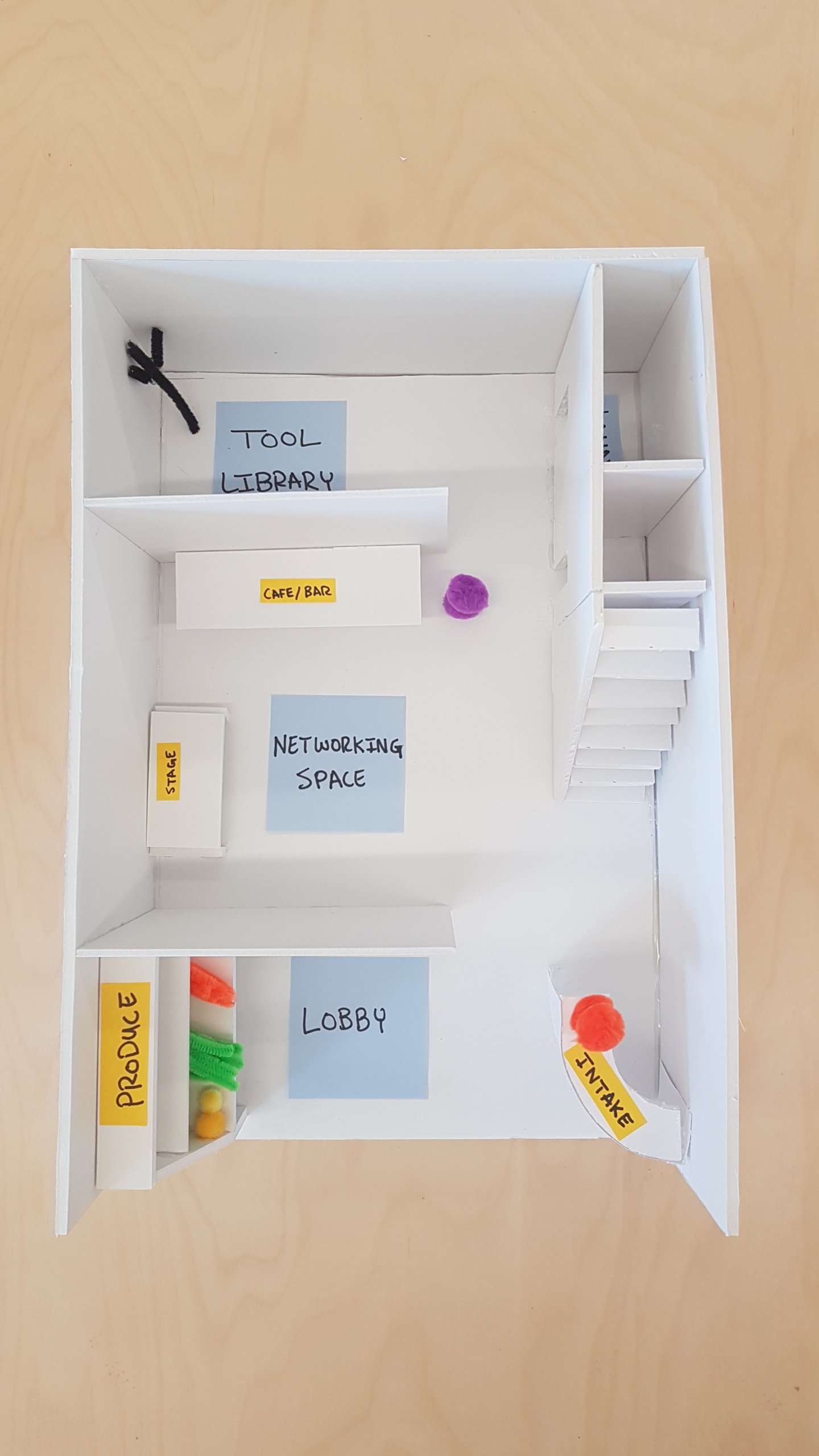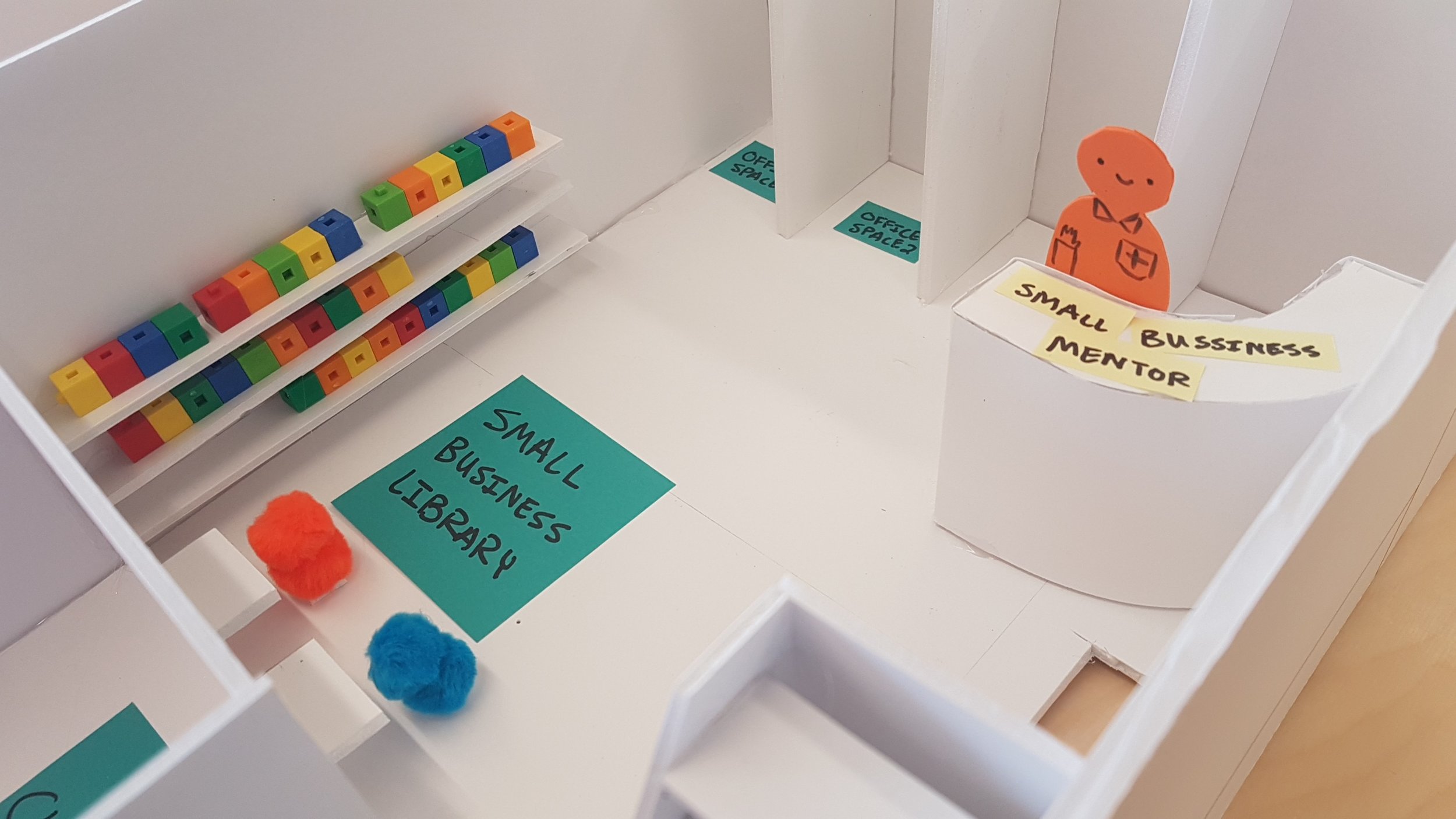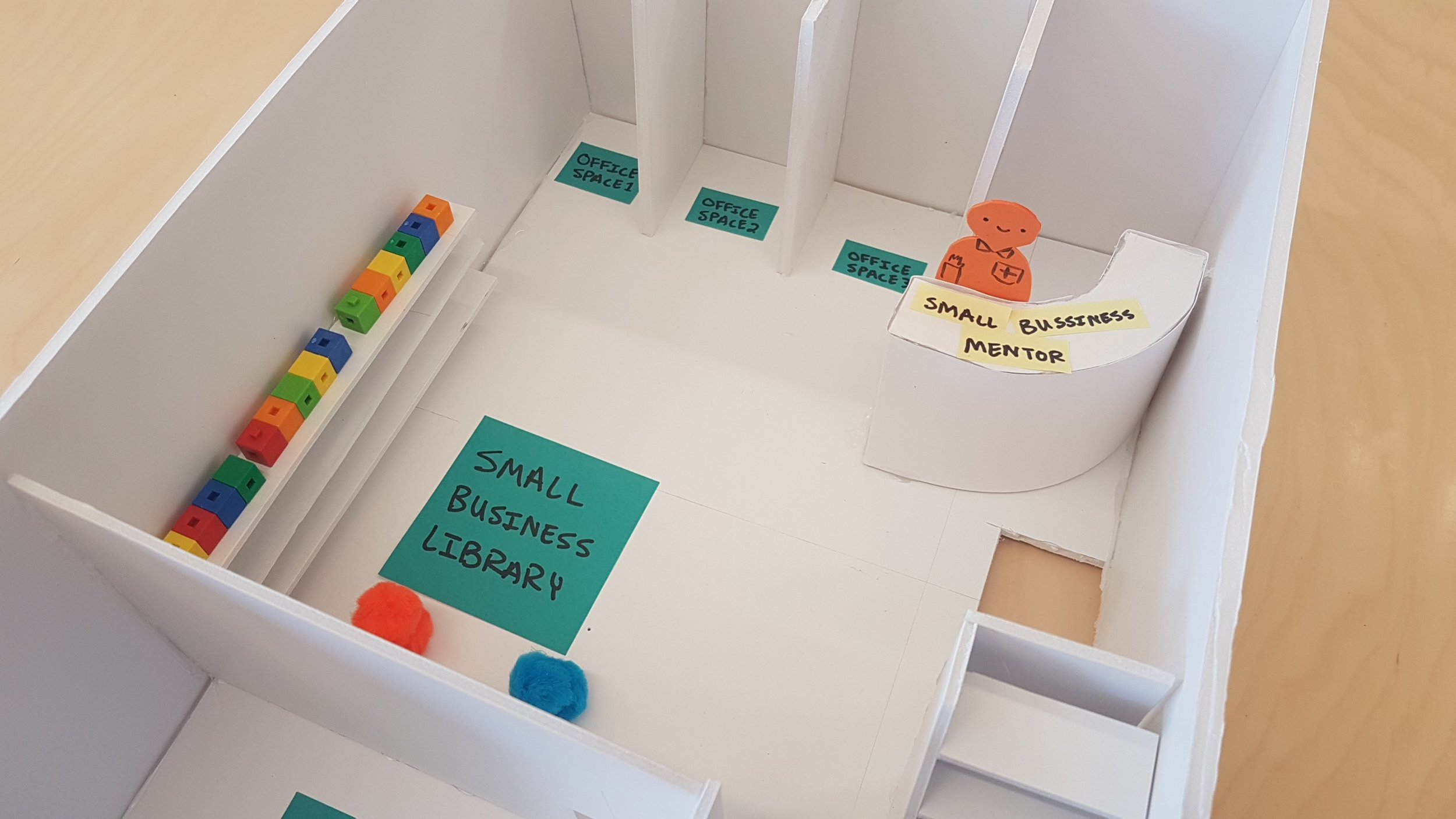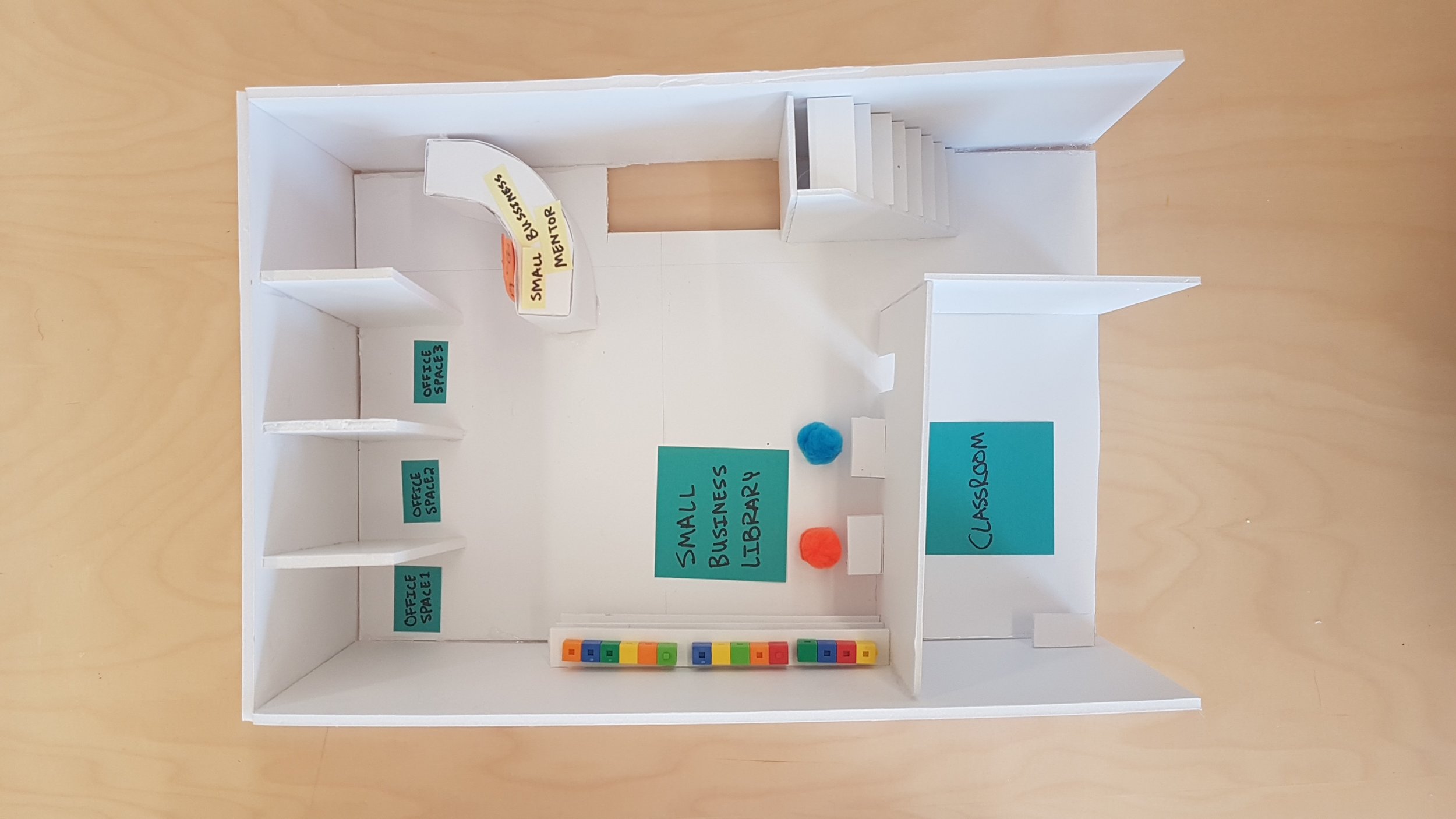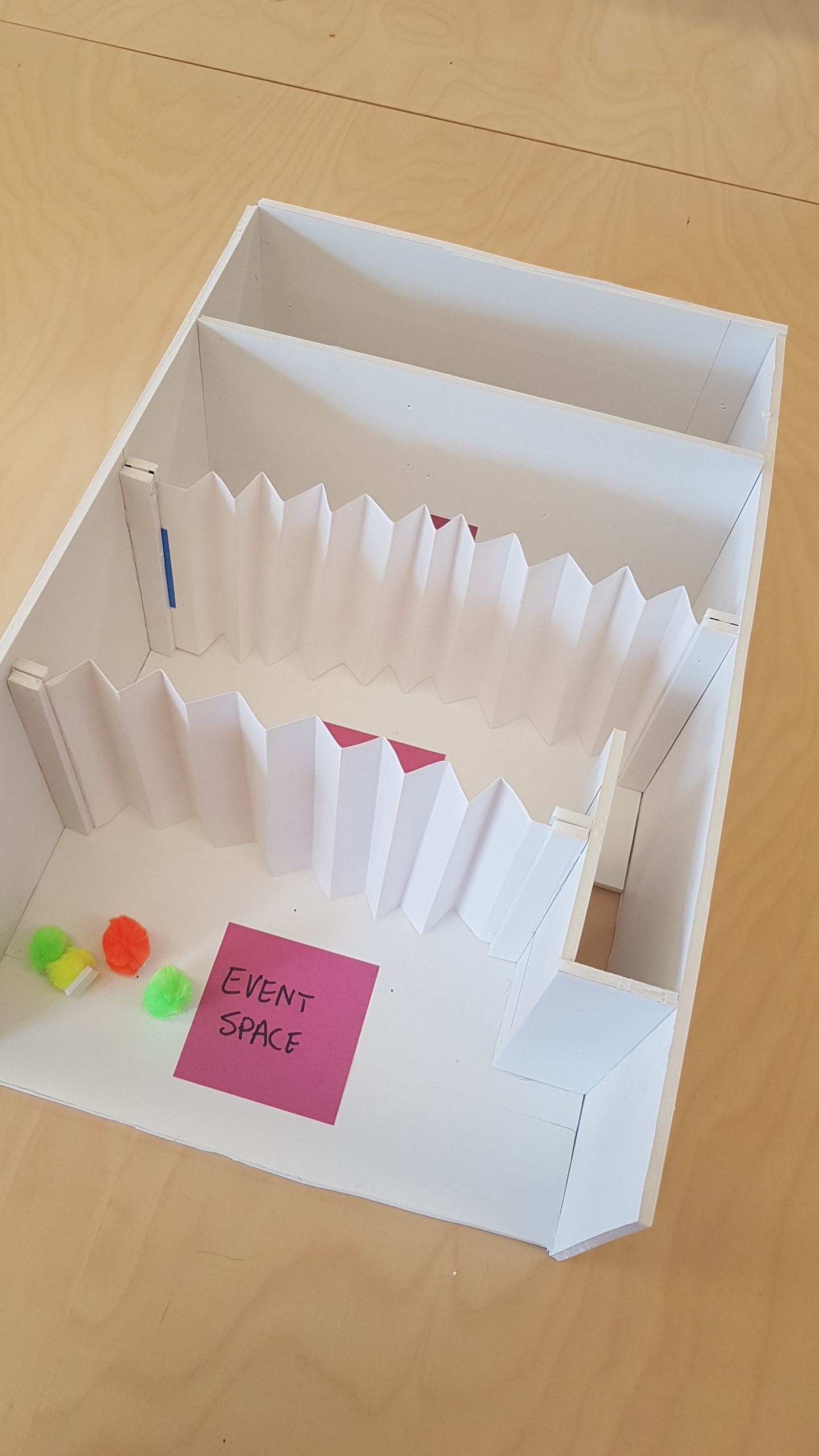ROLES. Researcher, Project Manager, Author
SKILLS. Human Centered Design, Prototyping, Data Synthesis, Facilitator, Workshop Design, Interview
CHALLENGE. There are 16,000 vacant homes in Baltimore City, most of which exist in just 10 square miles of the city’s east and west side neighborhoods. Residents of these neighborhoods are subject to higher crime rates, health disparities, and other socio-economic consequences.
A property near my east side apartment in Baltimore depicts the decay and subsequent consequences vacant houses have on residents.
APPROACH. While living on Baltimore’s east side, I spent the 2016-2017 academic year collaborating with Baltimore’s community members, non-profit partners, and local government employees to investigate the history, current context, and possible causes related to Baltimore’s vacant housing issue. As a part of my human centered design approach, I attempted to support ongoing work that enhances the prospects and living conditions of those most affected by vacant homes. To see an in depth explanation of my process, view my Thesis Publication.
INSIGHT. In my publication I discuss the qualitative and quantitative research that led me to better understand the complex ecosystem involving vacant homes, and how simply tearing them down or fixing them up is not a sustainable, or suitable approach. Instead, my research shifted to local economies as I investigated community wealth building strategies, focused particularly on using the assets that already exist in neighborhoods of high vacancy. I discuss this in greater detail during a presentation I gave at the 2017 MICA Social Design Exchange. See the video below:
PROTOTYPES.
Revive, an all inclusive small business resource center is run by local neighborhood residents, and positioned in the heart of high vacancy neighborhoods. Located in a formerly vacant home, this building is a one-stop-shop for the current entrepreneurs, aspiring entrepreneurs, or residents with one-off ventures and projects.
The space includes pop-up space for entrepreneurs who can deliver necessary amenities (laundry, groceries, etc.), banking needs for residents and local entrepreneurs, networking space, and a small business resource center.
Logo Copyright from SOUP Detroit.
Soup. A micro-granting community dinner held in vacant properties provides local residents with the chance to vote for and invest in community projects or businesses that benefit them and their neighbors. This prototype is modeled after the SOUP Detroit, which has conducted 100+ dinners funding projects, nonprofits and enterprises.
“When people come to East Baltimore, they ask, what’s wrong with these people? It’s not what is wrong with these people, it’s what happened to these people.”

